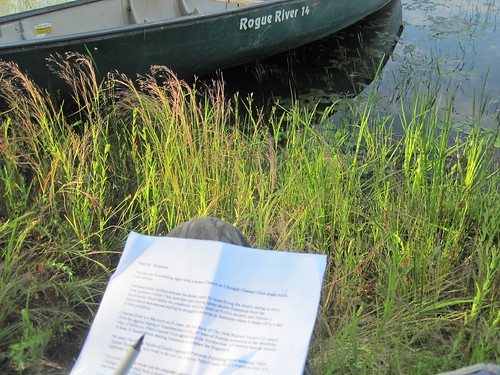At the end of July Jane Friedman (@janefriedman), posting from the Midwest Writers Workshop said, “Probably the stand-out advice of the morning was from Marcus Sakey, who talked at length on query letters.” Buried in good-if-not-so-memorable advice was a bomb that set the Twittersphere afire: Sakey (@MarcusSakey) “advised that query letters, if any good, would result in a 75% “send me something response.”
Manna from heaven! Just the pearls of wisdom that aspiring authors covet. Except when it contradicts their own experience. In fact, so much hullabuloo emanated from this claim that Friedman asked him to elaborate in a guest pos on her There Are No Rules blog. Sakey was quick to limit his assertion to fiction, “nonfiction is different, and I don’t know beans about it“, but I’m nevertheless drawn to his assertion that a query letter should not try to sell the book.
You are not selling the book… All you’re doing is seducing the agent. You want to get them interested enough that they ask to see your manuscript. That’s it. It’s like online dating. If you can write a charming e-mail, you might get a date; if you get a date, who knows where it could lead. But try to put all your history and baggage in that first message and you won’t get any play. Instead, demonstrate that you’re worth someone’s time. That you are interesting, sincere, and respectful. (How to Ensure 75% of Agents Will Request Your Material)
Makes sense to me! Of course, online dating still requires that you deliver the goods when you meet in person, or else Mr. Lonely will spend the rest of his days practicing his fly tieing and perfecting his hook while the fish get away again and again. Sounds obvious enough, but how do you interest the right agent? How do you demonstrate that you are worth their time?
Well, for one, you’re polished. Your language is compelling… your presentation is perfect… you’re brief. Agents are busy. There are hundreds of other queries to read. Finally, you are a storyteller. You know how to tease, how to intrigue, and you’re not afraid to put those wiles to work. (How to Ensure 75% of Agents Will Request Your Material)
The proof is in the pudding. Show; don’t tell. Am I missing a savory cliche? Perhaps, but the point’s clear and compelling: perfect hook + polished presentation + brevity = perfect pitch. But is it correct?
Related:




